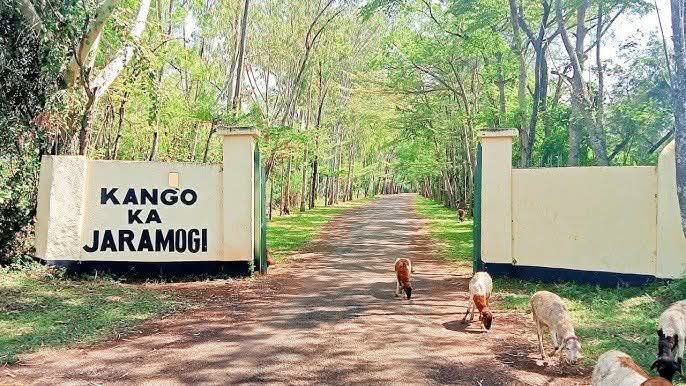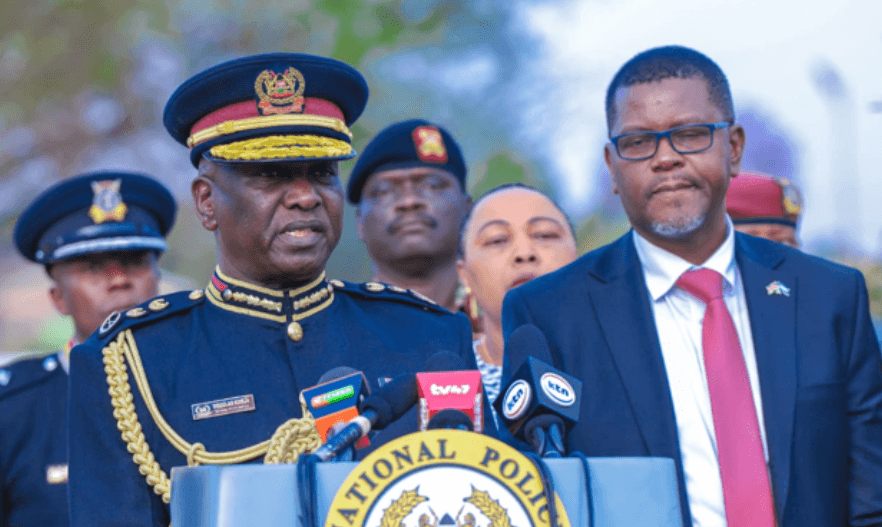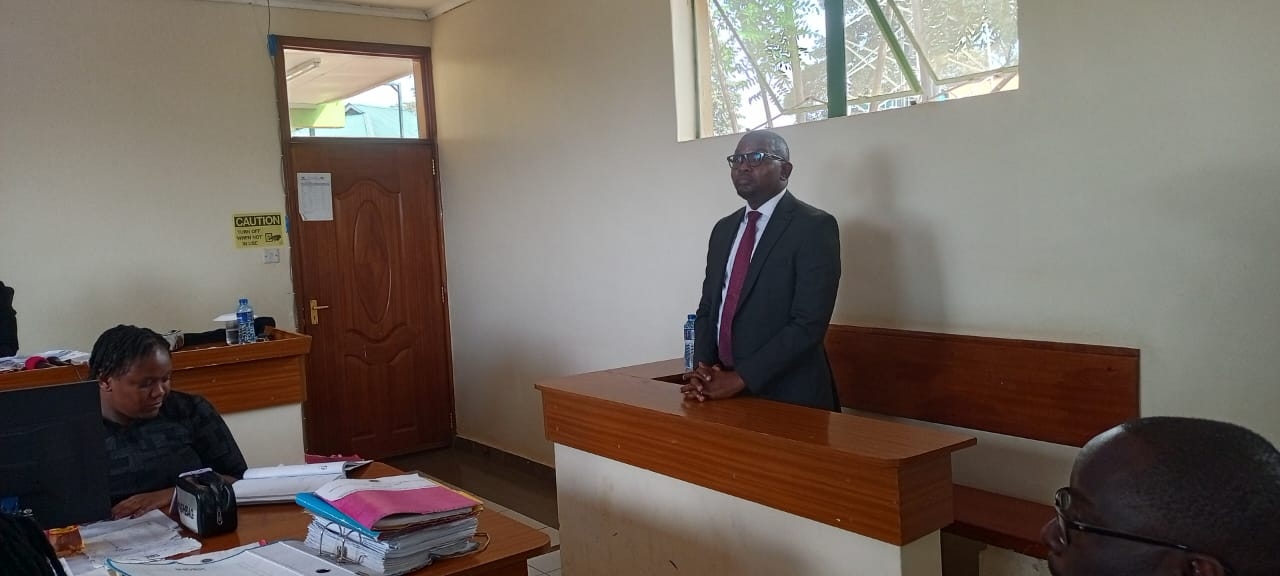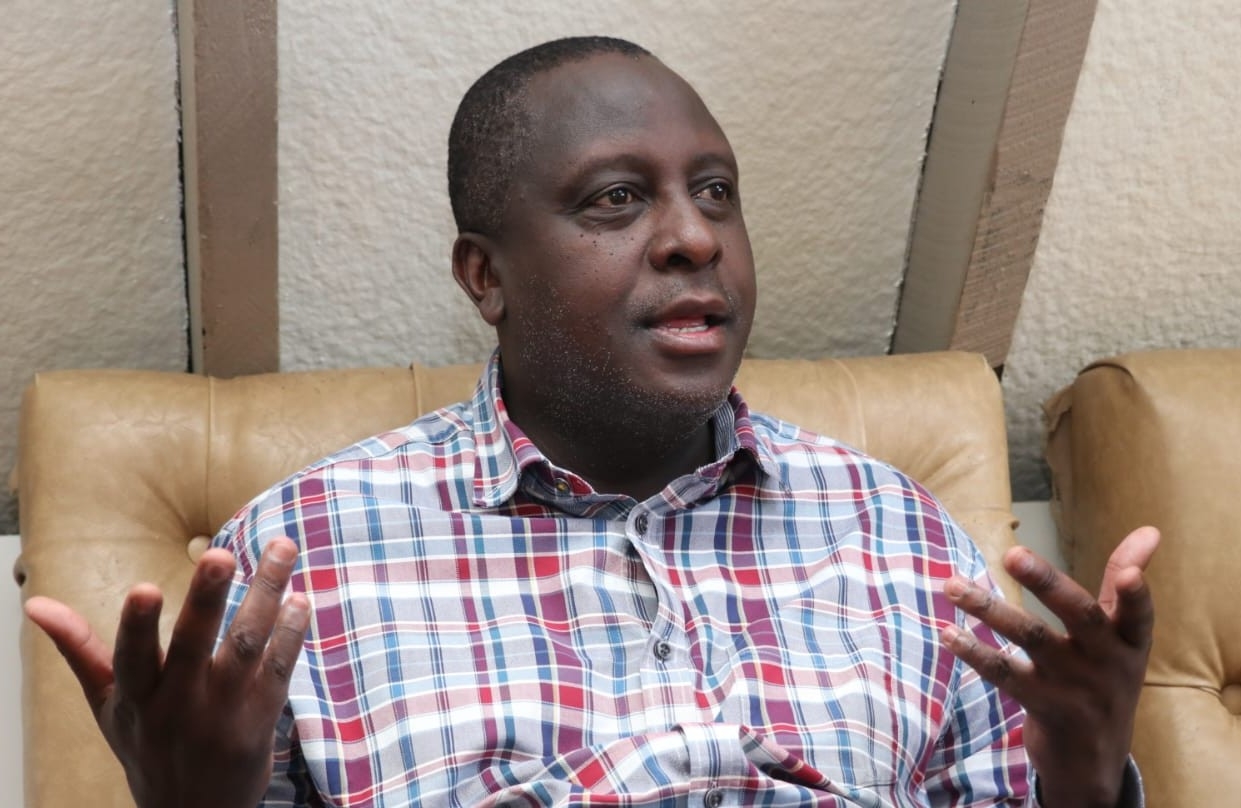Engaging Robert Maoga, you wouldn’t know that he is a chairman of a Kenyan Premier League club.
The 44-year-old alumnus of United States International University talks like a business executive and not a football mandarin.
Though he doesn’t concede it, Maoga is the man tasked with recouping the millions of shillings invested in turning Sharks from a nondescript non-league side to an outfit that can go toe-to-toe with English Premier League side, Everton and emerge victorious.
“Players are the most important investment of any football club. That is why you see the valuation of a squad being done in Europe, for example. If a tragedy wipes out the first team of a club, the value plummets and will take years for such a club to restore itself to their usual standard,” he explains.
So committed is Maoga to the financial aspect of managing a Kenyan club that he has all but admitted that winning the coveted KPL title is no longer one of their aspirations.
Instead, he is focused on moulding players who can attract interest from top clubs in Europe and earn Sharks top dollar.
“Winning is important in any sport but what we are interested in is how we do it. I know clubs that would go to any length to win a game. From taking opponents to substandard pitches, intimidation of match officials and hooliganism. That’s not the path we want our club to take. We want our players to showcase their talent in the best possible way,” he explains.
Masoud Juma, Sydney Lokale, Ovella Ochieng and Duke Abuya are some of the footballers who have left Sharks in recent years. Lokale and Abuya exited at the start of the current campaign, leaving many fearing that Sharks could be dragged into an unexpected relegation dogfight.
“At the start of the season, results were obviously not good. The players looked defeated prior to matches. That is why we decided to hire an expert to work on their mental strength. Since then, there has been a remarkable turnaround. I can’t say for sure it is the work on their mental health that has contributed to the improved performances, but it is surely a factor,” he asserted.
The executive director, finance and administration at Riverbank Solutions, an IT firm he runs alongside Football Kenya Federation(FKF) president Nick Mwendwa, truly has a blueprint which, if he does see it to completion, would turn Sharks into a fully professional club.
Already the club is a limited company registered as required by the laws of Kenya. Anyone who believes in their vision can invest and wait for returns which according to Maoga will not be too far away.
“I have engaged two top-notch football agents who have advised us in what is required for a player to attract interest abroad. That is the path we are taking,” said the postgraduate student of Strathmore University.
Sharks had sought to make the Dandora Stadium their home ground but administrative and legal issues nicked that plan in the bud. Still, though, the club chairman is determined to ensure that they have their own stadium in the not too distant future.
“We have a partnership with Utalii College that has seen us build one of the best pitches in the country, by far. We will soon be playing our home matches there and have a training pitch adjacent to the stadium. Having our own stadium is one of our targets to generate revenue. With Sh100m we can realise this dream. If we sell at least one player every year for USD500,000 onwards, it’s achievable,” stated Maoga.
A 3,000 sitter stadium is Maoga’s current plan, which will make Sharks the only side with a club-owned ground.
Trips to Greece, Turkey, the USA and Spain have enriched Maoga’s vision of running a successful football club. It’s no wonder that Sharks is the only club in Kenya with an age-group system to nurture talent. Partnerships with schools have also been fruitful with Kakamega High School among their feeder clubs.
“To mould a player into the standards required to succeed in Europe, you have to start early. That is what we are doing. We have an under-10 team rising up to our under-20. From an early age, the players know how they are expected to conduct themselves in a Sharks team. The philosophy is engrained in them from the start, particularly from under-17,” says Maoga.
“Some of them at that age get an opportunity to train with the senior team because it takes around two years for the end product to come out. All the players everyone is raving about now hit their limelight in their teens including Mbappe (Kylian), Haaland (Erin) and the rest of the youngsters. That is the age group European clubs are looking at right now.”
Maoga revealed that Sharks will be seeking partnerships with clubs in Europe like Borrusia Dortmund, Sunderland and Southampton, which will make their players’ journey to Europe less arduous.
“These partnerships are what have made players in West African countries like Ghana and Ivory Coast have many players abroad. We want to take a similar direction to make moves to Europe easier for our players,” he observes.
A trip to Turkey, specifically to the stadium of Besiktas, helped nudge Maoga towards making Sharks an enterprise. A meeting with the club officials left him with no doubt that, in spite, of their efforts, they are still far from being considered a professional football entity.
“I wanted to organise a friendly for Sharks and Besiktas but I was told in no uncertain terms that we could not manage. Upon seeking advise from our European agents, I understood why. We need millions in match fees to be paid. Football is a different ball game in Europe,” he said.
Currently, Sharks are striving to emulate the management befitting a corporate entity. The club has enlisted the players into a Sacco and all of them have medical insurance in case their careers are ended by injury.
“Football is a short-term career. That is why we are keen to ensure our players have the knowledge of financial prudence. I am happy that some of our players have invested their earnings wisely. For those who have been committed to the football club, once their playing career is over, we will absorb them in our other investments,” disclosed Maoga, a Dagoretti High School old boy.
To him, player welfare is also part of the club’s agenda.
“For example, Oyemba (John) was injured while with us. The club committed to continuing paying his salary until he recovers fully and can move to another club. That is how we take care of everyone involved with our club,” he notes.
The need to make a club a successful brand to attract partnerships is one aspect of management that he takes seriously. Recently, Sharks signed a sponsorship deal with betting firm Betway. However, Maoga states that he does not want the club to be overly reliant on sponsors.
“These partnerships are important but they are not an end to themselves. We want them to help us in achieving our objectives as a professional entity. The only way we can do that is to offer them a platform that they can also benefit from. We need to be marketable,” says Maoga.
“In this digital era, business models operate differently. That is why our presence online is crucial. We air our matches live on different platforms. We engage our fans via social media and our website. This is the only way we can attract investments because potential partners will know they are engaging with serious people,” he explains.
“Video footage helped us sell Masoud to Cape Town even though he was injured. The same applies to Lokale. We use video analysis and statistics to gauge the performance of our players in every match. That is what happens in Europe. To make them ready to take the next step in their career, we must emulate what the Europeans are doing,” he adds.
So determined is Maoga for Sharks to be a consistent supplier of players to the different markets in Europe that are ready to turn into a fully-fledged academy should they not be successful in the league.
“It’s something we are prepared for if things go from bad from worse. Our business is to mould players capable of playing at the highest level. We want to be the club that produces the next Victor Wanyama,” he concludes.













